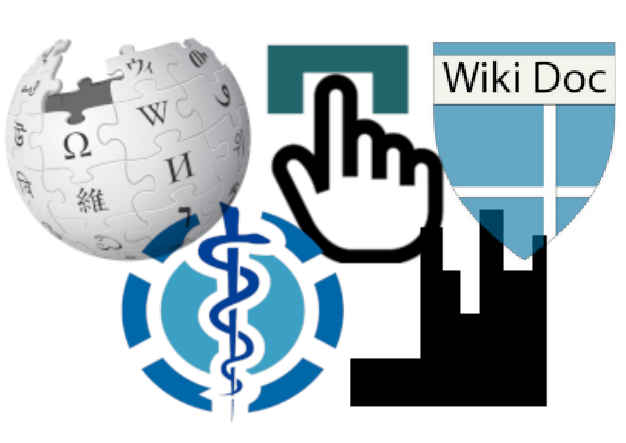Top 5 Wikipedia alternatives you should know about in 2023
May 30, 2024 - Reading time: 6 minutes
 In 2023 Wikipedia remains the world's biggest information resource used by communities of volunteers. Most of the other encyclopedic resources are smaller in size but, compared to Wikipedia, they are designed for specific areas of expertise and, typically, are maintained by non-for-profit organizations or persons with significant knowledge of specific topics. In many cases, they also have alternative publication policies for accepting online content, as well as the dispute resolution policies which have become increasingly important for the resources edited by large communities of experts.
In 2023 Wikipedia remains the world's biggest information resource used by communities of volunteers. Most of the other encyclopedic resources are smaller in size but, compared to Wikipedia, they are designed for specific areas of expertise and, typically, are maintained by non-for-profit organizations or persons with significant knowledge of specific topics. In many cases, they also have alternative publication policies for accepting online content, as well as the dispute resolution policies which have become increasingly important for the resources edited by large communities of experts.
In this article we will discuss wiki-style encyclopedias with free content (i.e. licensed under the Creative Commons Attribution-Share-Alike License or similar licenses), which can be edited by everyone who can login to these resources. We do not discuss, for example, Britannica, which is another great resource. It has a more restrictive license, plus it is behind a paywall.
Here are the five free Wikipedia alternatives to consider in 2023:
HandWiki – science, technology, computing and general knowledge;
Citizendium – general topics;
MDWiki - medical content;
WikiDoc – another medical encyclopedia;
Encyclopedia of life - biology related entries;
Below we will discuss these five online free encyclopedias in more details.
HandWiki (webpage: handwiki.org)
Probably, this is Wikipedia’s biggest rival in terms of the number of articles. In 2023, this encyclopedia had more than one million articles. Although it includes many articles from Wikipedia and other free online resources (with the proper attribution to original sources), the sheer number of non-Wikipedia articles is impressive. According to HandWiki’s website, the number of original non-Wikipedia articles is more than 1,000,000, which makes HandWiki uniquely large compared to any other Wikipedia alternative websites. HandWiki's entries look “cleaner” than Wikipedia’s articles, but most importantly, they are organized in 15 topics (“namespaces”). This helps navigation in different subjects. Unlike Wikipedia, anonymous logins are not allowed: HandWiki can be edited by registered users with verified professional credentials.
Citizendium (webpage: citizendium.org)
This is a sister website to Wikipedia, as it was created by one of Wikipedia’s founders, Larry Sanger. Besides having a somewhat better peer review process (including “citable certifications” and disclaimers if an article hasn’t been sufficiently peer reviewed yet), Citizendium forces all of its contributors to sign up for the website with their real names, instead of user names. The number of articles is smaller than in Handwiki. At the time, the overlap with Wikipedia content is rather smaller, thus providing alternative views on some topics.
MDWiki (webpage: mdwiki.org)
The goal of MDWiki is to provide reliable, comprehensive, up-to-date education resources and information in the biomedical and related social sciences freely available to all people. MDWiki's content efforts involve further developing Wikipedia's medical content. The encyclopedia is maintained by Wiki Project Med Foundation, with the effort to distribute offline medal content. We found that MDWiki does contain unique articles which are hard to find in Wikipedia. In particle, we appreciate various medical tables extracted from scientific journals, which are formatted in the wiki style.
WikiDoc (webpage: wikidoc.org)
WikiDoc is another open source website that allows an international community of healthcare professionals to add and edit medical content in a process termed co-creation. WikiDoc is designed to facilitate collaborative authoring. WikiDoc is open to a large contributor base, their articles are free in terms of copyrights. It is less susceptible to retaining bias, is very hard for any group to censor, and is far more rapidly responsive to new information. WikiDoc is written by consensus -- therefore eventually for most articles, through successive editorial iterations, most viewpoints achieve balance.
Encyclopedia of life (eol.org)
If you are interested in the knowledge about life on Earth, Encyclopedia of Life ("EOL") is the right place to look at. As stated on the EOL page, the main mission is to increase awareness and understanding of living nature through an Encyclopedia of Life that gathers, generates, and shares knowledge in an open, freely accessible and trusted digital resource. The encyclopedia is quite significant in size. It includes large collections of images of various species (some of such images, were moved to Wikipedia articles). However, we find that some articles are a bit too short compared to HandWiki and Wikipedia articles.
Conclusion
Irrespective of what encyclopedia you are using, one can access the described above encyclopedas at once, and many other encyclopedias not discussed here, using EncyclorReader.org and EncycloSearch.org web portals. Both webpages are part of the EncycloSphere network supported by the Knowledge Standard Foundation. These web applications are designed for searching and reading multiple online encyclopedias using a common presentation standard.
by A.Spitzer (EnHub editor), July 13, 2023